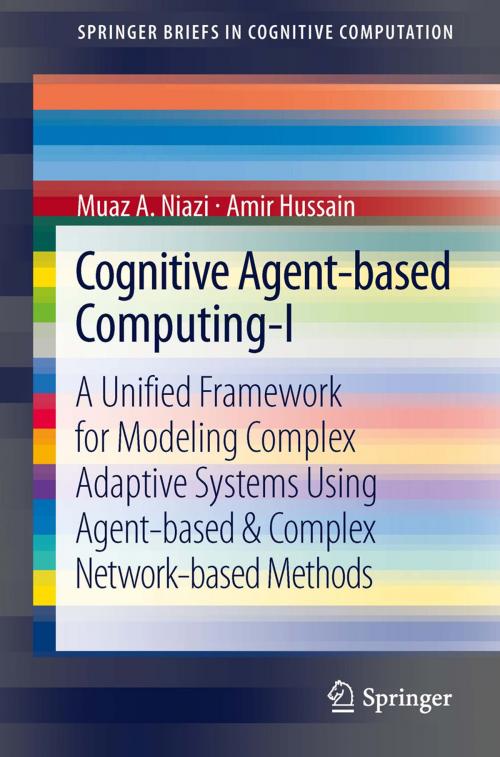Cognitive Agent-based Computing-I
A Unified Framework for Modeling Complex Adaptive Systems using Agent-based & Complex Network-based Methods
Nonfiction, Health & Well Being, Medical, Specialties, Internal Medicine, Neuroscience, Computers, Advanced Computing, Computer Science, Science & Nature, Science| Author: | Muaz A Niazi, Amir Hussain | ISBN: | 9789400738522 |
| Publisher: | Springer Netherlands | Publication: | October 31, 2012 |
| Imprint: | Springer | Language: | English |
| Author: | Muaz A Niazi, Amir Hussain |
| ISBN: | 9789400738522 |
| Publisher: | Springer Netherlands |
| Publication: | October 31, 2012 |
| Imprint: | Springer |
| Language: | English |
Complex Systems are made up of numerous interacting sub-components. Non-linear interactions of these components or agents give rise to emergent behavior observable at the global scale. Agent-based modeling and simulation is a proven paradigm which has previously been used for effective computational modeling of complex systems in various domains. Because of its popular use across different scientific domains, research in agent-based modeling has primarily been vertical in nature. The goal of this manuscript is to provide a single hands-on guide to developing cognitive agent-based models for the exploration of emergence across various types of complex systems. We present practical ideas and examples for researchers and practitioners for the building of agent-based models using a horizontal approach - applications are demonstrated in a number of exciting domains as diverse as wireless sensors networks, peer-to-peer networks, complex social systems, research networks, epidemiological HIV
Complex Systems are made up of numerous interacting sub-components. Non-linear interactions of these components or agents give rise to emergent behavior observable at the global scale. Agent-based modeling and simulation is a proven paradigm which has previously been used for effective computational modeling of complex systems in various domains. Because of its popular use across different scientific domains, research in agent-based modeling has primarily been vertical in nature. The goal of this manuscript is to provide a single hands-on guide to developing cognitive agent-based models for the exploration of emergence across various types of complex systems. We present practical ideas and examples for researchers and practitioners for the building of agent-based models using a horizontal approach - applications are demonstrated in a number of exciting domains as diverse as wireless sensors networks, peer-to-peer networks, complex social systems, research networks, epidemiological HIV















